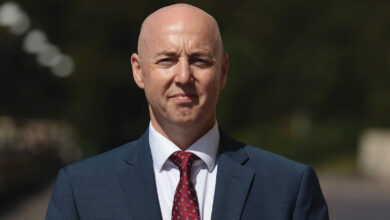Legislating for legacy

The Northern Ireland Office (NIO) has published a consultation paper which explores means by which Northern Ireland can address the legacy of its divided past. agendaNi assesses and evaluates the contents of the paper.
The draft bill in the consultation paper sets out prospective legislation for a Historical Investigations Unit (HIU), an independent institution which would take forward the outstanding work of the PSNI and the Police Ombudsman for Northern Ireland, with authorised policing powers.
Original proposals suggested that the HIU’s remit would only cover deaths up to 11 April 1998 when the Belfast Agreement was reached. However, Stormont House talks suggested that the HIU’s remit should be extended to cover deaths up to 31 March 2004. Ensuring the remit of the HIU is extended from 11 April 1998 up to 31 March 2004 would ensure that all deaths since 1968 will have been subject to review.
Should a person be convicted of a Troubles-related offence that took place between 1968 and August 1973, they would not currently be eligible for early release under current legislation. The amended time period would mean that anyone convicted of a Troubles-related offence committed between 1 January 1968 and 10 April 1998, including members of the security forces, would be eligible to apply for early release, irrespective of where they are serving their sentence in the UK, after having served two years in prison. It is estimated that the HIU will deal with approximately 1,700 Troubles-related deaths.
Unlike the HIU, engagement with the ICIR would be voluntary and only following the submission of a request from concerned families, with a remit extending beyond Northern Ireland by offering its services to families from the United Kingdom and the Republic of Ireland. Five Commissioners appointed by the British and Irish governments, as well as by the First and deputy First Ministers, would be required to hold experience relevant to the body’s work, including knowledge of working with victims and survivors, legal and judicial proceedings and security and policing.
The ICIR would not be subject to judicial review, Freedom of Information, Data Protection or National Archives legislation in the UK or Ireland – nor would its archives face searches or reacquisition by the police. At the conclusion of its enquiries into the death, the ICIR would provide the family with a written report, which would only contain information that the ICIR had verified.
Similarly to the ICIR, the OHA would seek engagement from the public only on a voluntary basis. The independent archive would allow all of those affected by the Troubles, including victims and combatants, to participate in weaving together a record of memories and experiences using a combination of new and recent recordings with existing oral history projects. As part of the project, the OHA would produce a factual historical timeline and statistical analysis of the conflict, responsibility for which would fall under the Public Record Office of Northern Ireland.
The Implementation and Reconciliation Group would seek to promote reconciliation and anti-sectarianism, whilst reviewing and assessing the implementation of the other legacy institutions proposed in the Stormont House Agreement. Following a five-year period the IRG would commission an independent academic report on themes using an evidence base established by the work of the other legacy institutions.
Similarly to the ICIR, the IRG would have a chair jointly appointed by the First and deputy First Ministers, with the British and Irish Governments appointing one each. The remaining members would be appointed by political parties, with the DUP nominating three members, Sinn Féin nominating two and the Alliance party, Social Democratic and Labour Party and the Ulster Unionist Party each nominating one member.
PSNI Chief Constable George Hamilton has described his force as being in “an impossible position”. “We are sitting on material, we are not going to shred it, we are going to keep it… but it is a monster.”





